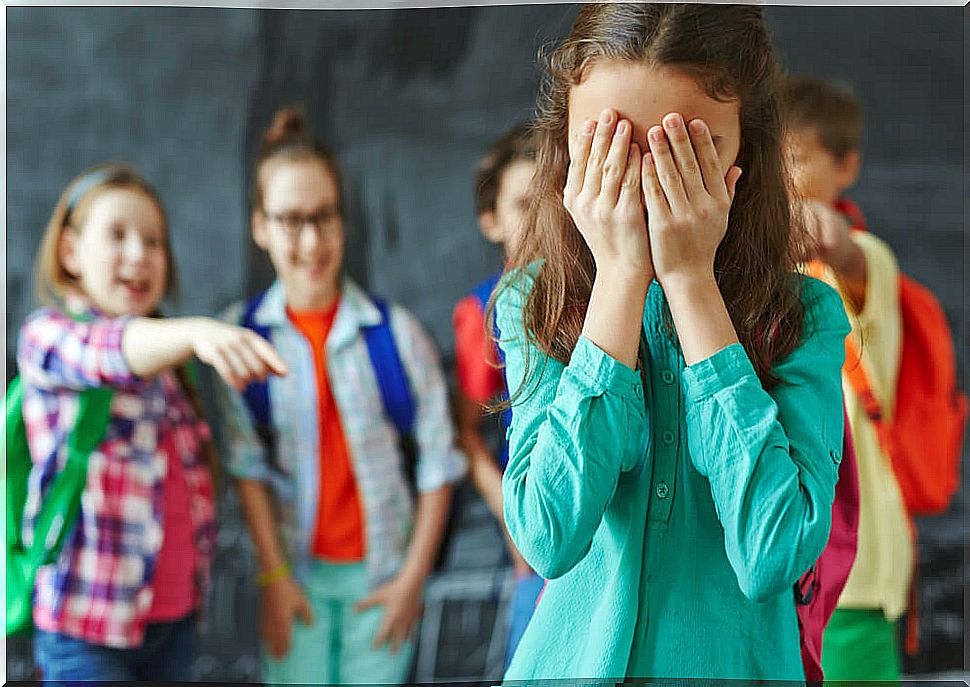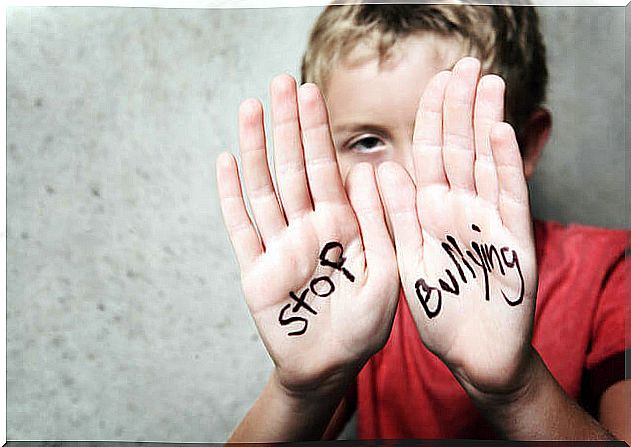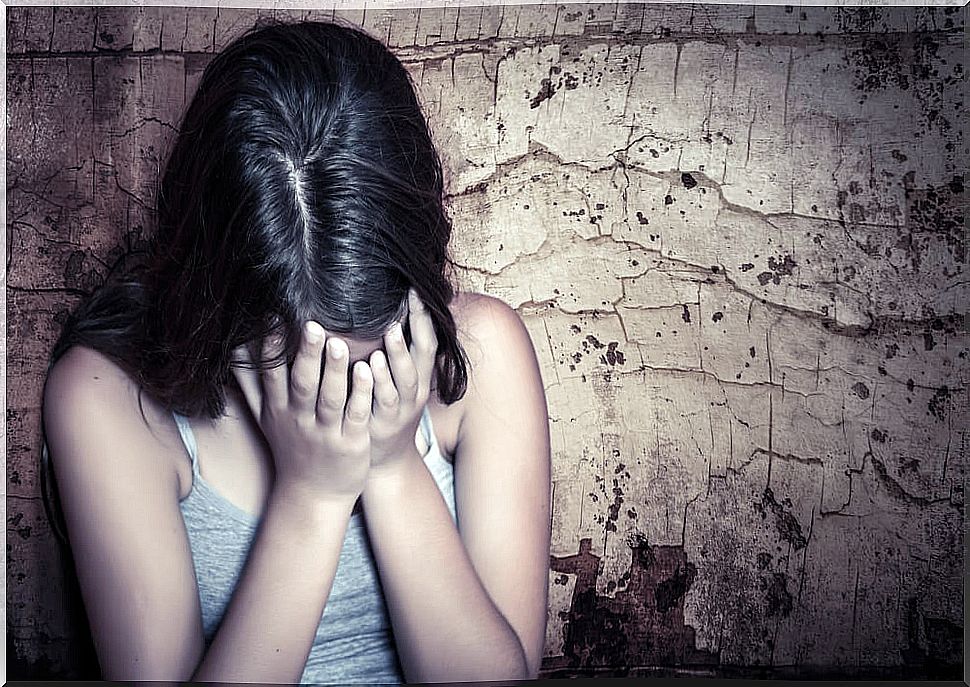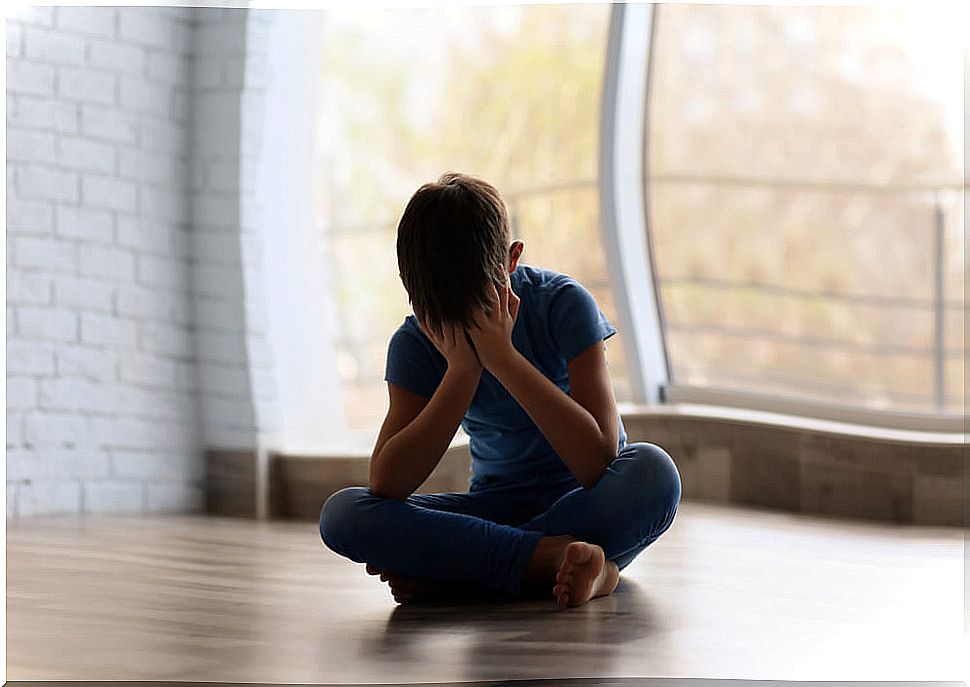Bullying: How To Catch It Early
As parents, we must help our children have a happy and trouble-free school life. Bullying can become harmful to the victim. Take action and help your child put an end to this unpleasant situation.

Preventing, detecting and stopping bullying as soon as possible is essential to avoid the development of sequelae and prevent the situation from becoming chronic. From being different from others, to the way a child dresses, they can be causes for him to suffer from bullying.
This type of situation is very common in children, but there are very few who dare to say that they are victims of this. Sometimes because they are not aware that what is happening is not right, they feel ashamed or think that no one will believe them.
Parents play a critical role in detecting bullying. It is necessary to be alert to changes in the child’s behavior. You have to give him support if he suffers any type of harassment. Make him feel guilty should be avoided. The most advisable thing is to make him feel in a healthy environment in which he can tell what is happening to him without fear of being judged.
How to detect bullying in time?
To detect bullying you must be alert to changes in your child’s behavior. Victims of bullying become more irritable, violent, and often have several tantrums a day. In addition, they may have psychosomatic changes such as headaches, stomach aches and even a great fear when going to school.

If your little one stops going on school trips, doesn’t want to go to school and doesn’t want to go to other children’s birthday parties, you should consider talking with him to find out what may be happening in his environment. Another thing that usually happens when a child is bullied is that their belongings begin to arrive broken from school, or are “lost”.
1. Your child won’t want to go to school
When a child is bullied, they don’t want to be around their bullies. Therefore, it is normal for him to cry when going to school. Even, that comes to feign discomfort to stay at home.
If your child withholds information about school, it is a red flag. The natural tendency of the child is to hide the bullying. Out of fear, because he is threatened or because he thinks it is a temporary situation.
Therefore, it is advisable to maintain good communication with your little one and constantly ask him about what is happening at school , the relationship with his classmates and the fears he may have.
2. Your child will become insecure
Insecurity and distrust are common characteristics in children who suffer from bullying. When a classmate teases them frequently about the way they look, dress, or speak, children feel vulnerable and find it hard to believe that other people will not do the same to them. As a consequence, they become introverts and try to go unnoticed. Also, they have a hard time making any kind of eye contact with other people.
3. Your child will have behavioral changes
Bullying can cause the child to have strong behavior changes. This is because if you are not able to share what is happening to you, you will silence your feelings and end up expressing them in another way.
4. Your child will secretly cry
Children who are victims of bullying do not discuss it with their parents for fear that they will discuss the situation at school and the bully will want to take revenge. So they seek to cry in silence. That way, no one will ask them about the reasons for their crying.

For this reason, it is important to maintain open communication and give children confidence . This way they will feel that they can share what happens in class without the need for consequences that put their physical dignity at risk.
5. Bullying can be physical at times
Some stalkers resort to name calling. Others prefer physical punishment. If your child frequently comes home with bruises, you should ask him what is wrong. Most likely, he is trying to answer you with a lie such as “I fell” or that he had an accident in sports class.
If this happens, the first thing you should do is talk to your little one and ask who is doing this to him. If she doesn’t give you a clear answer, go to her teacher and discuss the situation. This way, she will be aware of who the problem children in the class are. You will know exactly what reprimands can be taken against the harasser.
Consequences of bullying
A child who is bullied at school can suffer many profound consequences:
- They denote a very low self-esteem.
- They become totally passive people.
- They have emotional disorders.
- They suffer from anxiety, depression and stress.
- They are not in the mood to continue with academic activities and avoid going to school at all costs.
Resentment
If your child suffers from bullying, it is likely that he will develop feelings of resentment and resentment, not only towards his aggressor, but, towards his environment in general. This can cause him to become a bully himself and repeat the same actions that his bully took against him. In other words, resentment will create more bullies, turning this behavior into a vicious cycle.
Low self-esteem
When a child is bullied at school, he tends to develop low self-esteem because his bully constantly insults him or makes him feel belittled for his attitudes or characteristics.

Low self-esteem can lead to depression, stress, and anxiety. They will have difficulty relating to their environment. They will see enemies everywhere, and limitations to establish bonds of friendship or couple in the future.
Illness or death
Bullying also damages the physical health in the present and future of the child who suffers it. Minors who are bullied may experience chronic systemic inflammation that persists into adulthood. The depression that these children feel is so strong that to avoid continuing to face bullying, they consider suicide as an option and some even execute it.
Conclution
Bullying is common in children and any infant is exposed to be a victim of it. The important thing is to be able to detect it in time to take the necessary measures and prevent the little ones from suffering serious consequences on their psychological and physical health while they grow.
If your child is bullied, they may avoid going to class. He will be more nervous or withdrawn, will present psychosomatic symptoms such as stomach pain, vomiting or insomnia; her school supplies are frequently missing.
One of the best ways to prevent bullying is by maintaining good communication with your little one. H az that home is their safe place so you can share fearlessly what happens at school.
See also:









